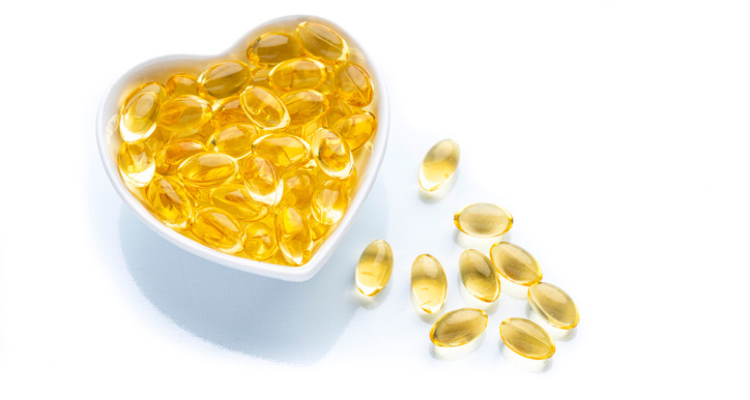From heart health to hormonal balance and brain sharpness to glowing skin — omega-3 fatty acids have taken center stage in the wellness world. But is it all hype, or is there truth behind the buzz?
Let’s decode the facts — what omega-3s really do, who needs them, how to get them, and whether supplements are truly necessary.
🧬 What Are Omega-3 Fatty Acids?
Omega-3s are essential polyunsaturated fatty acids (PUFAs) — your body can’t make them on its own, so they must come from your diet. The three major types are:
-
ALA (Alpha-linolenic acid) – Found in flax, chia, walnuts
-
EPA (Eicosapentaenoic acid) – Found in fish/algae
-
DHA (Docosahexaenoic acid) – Found in fish/algae
✅ ALA is plant-based but needs to be converted into EPA & DHA to be effective, and conversion is poor (~5–10% to EPA, <1% to DHA).
💡 Why Is Omega-3 So Important?
Research has consistently shown that omega-3s:
-
🔥 Reduce inflammation systemically
-
🫀 Support heart and blood vessel health
-
🧠 Boost brain performance and memory
-
👁️ Support eye health (especially DHA)
-
🩸 Improve lipid profile and reduce triglycerides
-
🤰 Aid fetal brain and vision development during pregnancy
-
🌙 Help manage mood, PMS, and hormone balance
“Omega-3 fatty acids play a critical role in preventing and managing heart disease.” — American Heart Association
🌍 Do Most People Need Supplementation?
Surprisingly, yes — many do. Here’s why:
-
Vegetarians and vegans rarely get EPA/DHA (plant foods contain only ALA)
-
People with chronic inflammation, endometriosis, PCOS, IBS, or autoimmune conditions need higher EPA
-
Elderly, pregnant women, kids, and those on inflammatory diets benefit from supplementation
-
Even non-vegetarians often don’t meet the required intake unless eating fatty fish 2–3 times a week
🥗 Natural Sources of Omega-3
✅ ALA-rich plant foods (for general support):
-
Flaxseeds (1 tbsp ground): 1.6g ALA
-
Chia seeds (1 tbsp): 1.9g ALA
-
Walnuts (7 halves): ~2.5g ALA
-
Hemp seeds, perilla seeds, soybeans
✅ EPA + DHA sources (bioavailable):
-
Fatty fish: salmon, sardines, mackerel
-
Algae oil (for vegetarians/vegans)
🔥 Does Roasting or Heating Seeds Destroy Omega-3?
Yes — partially.
-
ALA is heat-sensitive. Dry roasting at high temperatures (above 120–150°C) can reduce omega-3 content by up to 20–30%.
-
So, prefer:
-
Lightly toasted or raw, soaked, or freshly ground seeds
-
Avoid deep roasting or frying
-
Store in a cool, airtight container to prevent oxidation
-
💊 When is Supplementation Necessary?
✔️ Consider supplements if:
-
You’re vegetarian/vegan and not eating algae-based sources
-
You have inflammation-related disorders (like endometriosis, PMS, IBS)
-
You’re not eating fatty fish at least 2x/week
-
You’re pregnant or lactating (DHA supports baby’s brain development)
-
You have high triglycerides or mental health symptoms
💊 Dose & Supplement Options
🧪 Recommended Daily Intake:
-
General health: 250–500 mg EPA + DHA
-
Therapeutic use (heart, mood, inflammation): 1000–2000 mg/day
-
Pregnancy: 300–500 mg DHA
-
Children: 100–250 mg (age-dependent)
✅ Supplements Options:
-
Algae-based capsules (vegan, EPA+DHA)
-
Fish oil (triglyceride form) – higher bioavailability
-
Krill oil – anti-inflammatory but more expensive
Always take omega-3 with meals containing fat for better absorption.
🛡️ What Diseases Can Omega-3 Help Prevent or Manage?
-
Cardiovascular disease
-
Depression & anxiety
-
Endometriosis & PMS
-
Rheumatoid arthritis & autoimmune conditions
-
Cognitive decline, Alzheimer’s
-
Macular degeneration (eye health)
-
Asthma in children
🌿 Final Thoughts
Omega-3s aren’t just a buzzword — they’re a fundamental building block of long-term wellness. While diet should be the first line of defense, supplementation is often necessary for modern lifestyles and conditions.
✅ Choose the form that suits your ethics and body type
✅ Don’t rely on just seeds — combine wisely or supplement smartly
📌 Backed by research from:
- Burns-Whitmore B et al. Nutrients. 2019 Oct 4;11(10):2365.
- Kashif Ghafoor, et al. Food Chemistry. 2020; 333 (127531).
- NIH Office of Dietary Supplements
- American Heart Association
- J Am Coll Nutr., 2002; Cochrane Reviews

Akanksha Sharma
Dr. Akanksha Sharma, Head Writer and creator of AtoZ of Pregnancy, is dedicated to empowering women, parents, and families through 360-degree knowledge. She and her team provide evidence-based advice to guide families through pregnancy, parenting and beyond.






